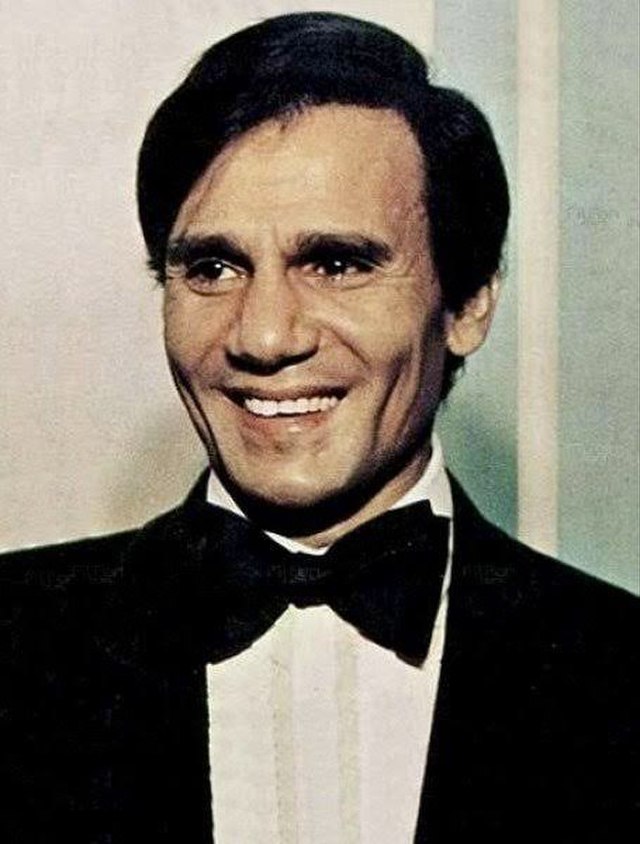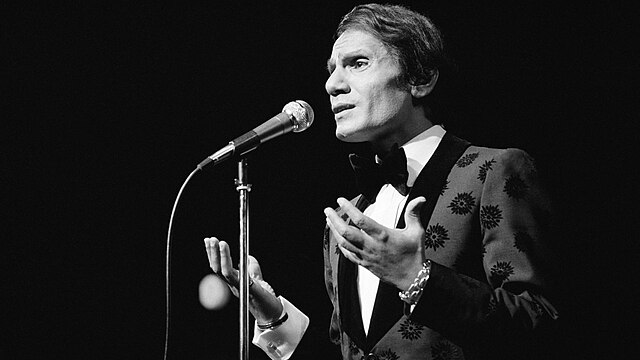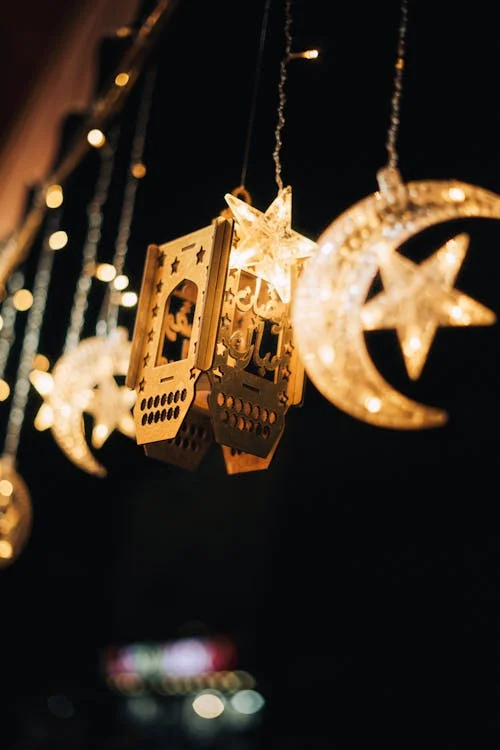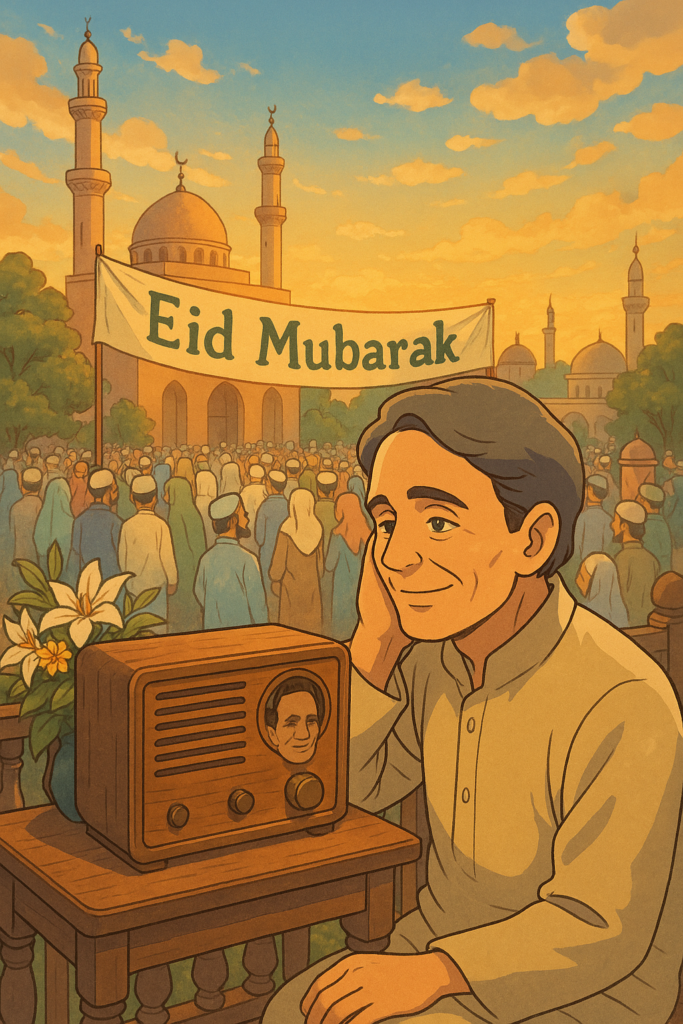The Moon Sets on Eid, Abdel Halim’s Music Shines Too

Yara Marei/ Arab America Contributing Writer
“To the same place we go, in the cycle of a lifetime, we are lost, in the cycle of a lifetime…” With these timeless lyrics, Abdel Halim Hafez’s voice transcends generations, stirring emotions of love, longing, and fate. His melodies bring back memories of past Eids, family gatherings, festive joy, and the bittersweet ache of nostalgia. For many, his music is more than just a soundtrack to celebration; it is a bridge to the past, a symbol of belonging for those whose fondest memories live in the echoes of his songs. Every year, as families come together for Eid Al-Fitr, his melodies fill homes, streets, and hearts, making his presence felt across generations. This year marks the 48th anniversary of his passing in 1977, forever intertwining his legacy with this cherished holiday. Eid Mubarak from Arab America and Yara Marei, Arab America Contributing Writer.
Secrets of Abdel Halim’s Legacy

Abdel Halim Hafez, often referred to as the “Nightingale of the Nile,” was one of the most influential and beloved singers in the Arab world. Born in 1929 in Egypt, his career spanned from the 1950s to the 1970s, during which he revolutionized Arabic music with his emotive performances, poetic lyrics, and orchestral arrangements. His songs, such as Ahwak, Mawood, and Zay El Hawa, remain classics, resonating with audiences across generations. Beyond music, Abdel Halim was also a successful actor and played a key role in shaping the golden age of Egyptian cinema. His deep connection with the people, coupled with his ability to express emotions through music, cemented his place as a cultural icon.
Even after nearly five decades, Abdel Halim Hafez remains deeply loved by his fans. His dedication to music was undeniable; he performed with boundless energy, masking his illness so well that some believed he was faking it. In reality, he was battling a serious disease but never let it stop him from giving his all on stage. His sudden passing at just 47 years old left a void that has never truly been filled.
Though he had no children, his legacy lives on through the love of millions who still pray for him and keep his memory alive. Every year on the anniversary of his death, fans, friends, and family gather to honor him, visiting his grave and playing his music late into the night. This tradition is deeply rooted in Egyptian culture, where remembering loved ones through prayers and memorials is an important custom.
Abdel Halim’s House Opens as a Museum

Abdel Halim Hafez’s home on Bahaa Aldeen Karakoush Street in Cairo has been transformed into a museum, giving fans a glimpse into the space where his music was born. Visitors can explore his personal belongings, photographs, and memorabilia, offering a window into his artistic journey.
Fulfilling Abdel Halim’s wish, as stated in his will, his home now stands as a tribute to his legacy. Turning this dream into reality was challenging due to its location in a crowded neighborhood. In recent years, the house has opened to visitors on select dates, including December 14, 2024, and March 30, 2025, marking the anniversary of his passing. For three years, it remained closed on March 13 due to Ramadan, but this year, it welcomed admirers once again, allowing them to step into the world of the legendary singer.
Impact Over Generations

For Egyptians born in the 1980s and after, March 30th became an almost national event. They would rush home from school to watch TV or listen to the radio, where every channel played Abdel Halim’s films, concerts, and interviews all day long. He was more than just a singer; he was a national treasure, a symbol of passion and artistry whose influence still echoes across the Arab world.
For those born in the 1990s and beyond, Abdel Halim’s music lives on differently. Many remember hearing his songs during long car rides to visit family, just as I did, with my parents playing his music on the way to my grandparents’ house, filling the journey with nostalgia and warmth.
Abdel Halim’s ‘Photograph’ vs. Ed Sheeran’s

In addition to his romantic and longing songs, Abdul Halim Hafiz composed numerous national anthems, particularly between 1966 and 1977, a period marked by significant wars involving Egypt and other Arab nations against Israel. This period included the Six-Day War (1967), the War of Attrition (1967–1970), and the Yom Kippur War (October War) in 1973. These wars deeply influenced Abdel Halim’s music, inspiring patriotic songs that resonated with the emotions of the era.

One of his most remarkable national songs is “Photograph,” which stands apart from Ed Sheeran’s song of the same name. Unlike Sheeran’s romantic ballad, Abdel Halim’s “Photograph” is a patriotic anthem that celebrates national pride and unity.
“Photograph, all of us want a photograph.
A photograph of happy citizens under the victorious flag,
And those who fled the battle will never appear in the photograph.”
The lyrics emphasize the desire for a photograph of joyful citizens celebrating beneath the victorious flag. Even today, this song continues to be played at national events in Egypt and the Arab world. Renowned Egyptian artist Ahmad Jamal revived the song by re-composing it, making it popular among younger generations, including Millennials and Gen Z. The song’s powerful lyrics pledge loyalty to the land, its resources, and its future, ensuring that the spirit of victory never fades.
The Spiritual Influence of Abdul Halim Hafiz’s Islamic Songs

Abdel Halim Hafez also made a lasting impact on Islamic music, creating songs that deeply touch the soul. His spiritual songs are loved by people of different faiths, as they strengthen the bond with God. One of his most famous pieces, “The Leaves of Trees,” reflects on the delicate veins of a leaf, showcasing the Creator’s perfect artistry. His lyrics beautifully express awe at the precision of nature, making his songs especially cherished during Ramadan and other religious occasions. Through his music, Hafez unites people in their devotion and appreciation of the divine.
“Look at the veins of a leaf, so fine and precise,
A sign of the One who creates with wisdom and grace.”
Celebrations and Eid Traditions

Ramadan strengthens the bond with God, and Abdel Halim Hafez’s Eid songs continue to inspire. This year, confusion over Eid’s start arose when different countries celebrated on different days. Saudi Arabia first announced Eid on Sunday, March 29, 2025, while Jordan, Egypt, Iraq, and Oman declared it on Monday, March 30. After reviewing the moon sighting data, Saudi Arabia corrected its announcement to match the others.

Eid officially began on Monday and lasted three days. The celebrations kicked off with an early morning prayer about an hour after sunrise. Families gathered for breakfast and some much-needed rest after Ramadan. The festive days were filled with visits, cultural traditions, and the enduring melodies of Abdel Halim Hafez and other classic artists.
Eid Celebrations Through Music and Memory

For many, Eid is synonymous with warmth, family, and tradition. Across the Arab world and beyond, celebrations begin with the sighting of the crescent moon, leading to joyous gatherings, special prayers, and festive meals. Yet, one common thread remains: music. Abdel Halim’s songs, whether playing in the background of lively get-togethers or softly accompanying a reflective moment, evoke a sense of belonging and continuity. His melodies transcend generations, making him a musical companion to both the young and the old during Eid.
Is Eid Really Over?
It’s Wednesday! The third and final day of Eid marks the end of a month of fasting and the beginning of celebration. This year, Eid arrived with some confusion as different countries observed it on different days. Some relied on astronomical calculations, while others waited for local moon sightings, leading to a staggered start. But despite the differences, the heart of Eid remained the same: family, joy, and togetherness.
Through it all, Abdel Halim Hafez’s voice echoed in homes and streets, a timeless reminder of tradition and unity. His songs have been the soundtrack of Eid for generations, carrying the spirit of the holiday beyond its official days. And as long as his melodies continue to play, perhaps Eid never truly ends.
check our blog here!








